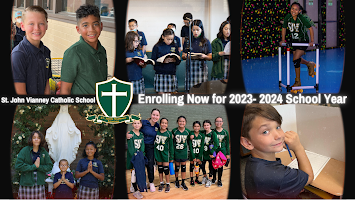Nurture Children's Minds and Hearts with Christian schools in Sacramento
Children in the U.S. are in school for over 1,000 hours each year, and with so much of their youth spent in classrooms, education is an investment parent must carefully plan for to ensure the brightest future possible. Choosing a school can be difficult, but there are many options, including public, charter, private and Christian schools. There are many benefits associated with selecting a Christian educational institution: tailored lessons and a trusted curriculum to uphold their faith-based values and spirituality; close-knit small class sizes that allow students to develop better social skills as well as thrive academically; and excellent teachers who become more than mentors or instructors but become confidants that nurture children's spiritual growth and character development via small group mentoring sessions. Let us take an in-depth look at each.
· Low Teacher to Child Ratios
Many children are placed inside large classrooms when starting their academic education. Public schools often excel in bringing diverse students together under one roof, which can be great for some families, but it isn't the best choice for every child. At a Christian school, students can learn and thrive in smaller settings where they will spend more time with teachers who care about their progress as well as their progress as people in both faith and practice. An investment in a Christian school is an investment not only into your child's growth as an individual but also into their faith journey.
· For the Love of the Arts
Christian schools provide a unique setting for students to learn variety. Most Christian schools offer electives in addition to the core classes; these electives are often required or encouraged. Music is just one of the many optional courses in most private and religious schools. Students may freely choose their hobbies, talents, and paths without restriction from their private institutions.
· Faith-Centered Instruction
Christian schools in Sacramento offer a wide variety of courses that include not only Christian classes but also secular studies. Religious practices focus on scripture studies, church, and techniques such as morality and social justice. Schools coordinate field trips for students to participate in volunteering at homeless shelters and nursing homes. These lessons inspire young students to think critically about morality and become active citizens outside of classroom time.
· Strong Core Courses
Through prayer and worship are essential components of the education experience, core courses and teachers who specialize in them are equally as crucial for Christian schools. As with any center of education, they must also be accredited and certified by the state. Smaller institutes may tend to be even more selective when selecting their faculty, ensuring that only talented and driven teachers are managing their classrooms. They will often deviate from the standardized format set forth by public schools but may expand upon or build upon math, science, and English courses.
· Students Stay Safe
As Jesus is the shepherd to His people, the faculty will be shepherds to theirs. Administration, teachers, and students all work together to provide a safe environment. Since these schools are small, strong communities are built. Parents can rest assured that their children are not perfect - but rather experiencing an environment where they can learn in a wholesome and safe environment.
Parents are the front-runners in knowing what’s best for their children. When they consider what kind of education would be best, you should support them by encouraging them to choose a Christian school in Sacramento, where nurturing the mind and heart comes first, with an understanding that progress is made in focus and teamwork.
The Religion curriculum challenges students to participate in worship, act as part of a community, and realize that each person deserves love and respect. Students study scripture, learn Catholic doctrine, and study and prepare for the Sacraments of Reconciliation, Eucharist, and Confirmation. Students are encouraged to respond to the needs of others, live peacefully and justly, and care for God’s creation.

Comments
Post a Comment